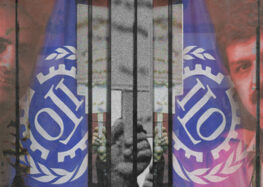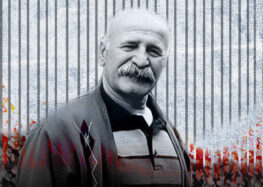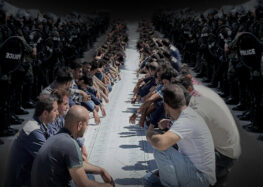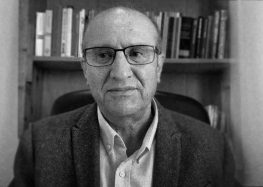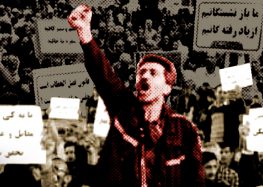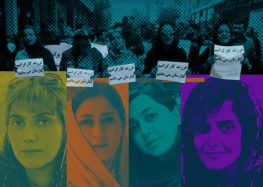Iranian MP Calls Arrests of Protesting Ahvaz Workers “Violation of the Constitution”
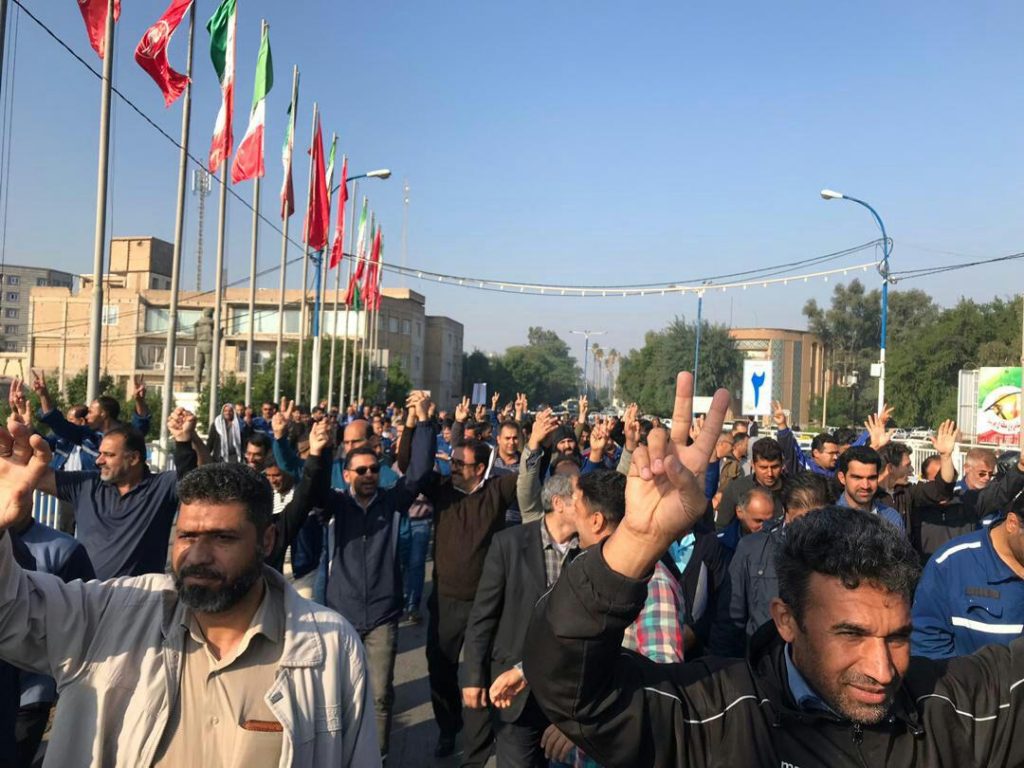 At Least 31 Steel Workers Remain Detained
At Least 31 Steel Workers Remain Detained
Eleven workers detained during protests by employees of the Iran National Steel Industrial Group (INSIG) in southwestern Iran between December 17-18, 2018, were released on bail December 19, but at least 31 others remain behind bars, the Center for Human Rights in Iran (CHRI) has learned.
Two Iranian officials have criticized the arrests, with one member of Parliament noting that the workers’ constitutionally guaranteed right to freedom of assembly has been violated.
On December 18, Labor Minister Mohammad Shariatmadari pledged to seek the release of the detained workers and insisted that the protests are not a security issue.
“It’s obvious that when a manufacturing plant falls into production problems, workers’ salaries get delayed and they have no means to make ends meet and it causes protests,” Shariatmadari said.
He added: “Sometimes, a worker doesn’t get paid for months and has no other choice but to protest. Therefore, these labor protests should be looked at and resolved from a social and economic perspective but unfortunately, they turn it into a security problem and want to resolve it with security measures rather than economic ones.”
The labor minister did not clarify whom he was referring to as “they.”
Alireza Mahjoub, the head of the labor faction in Parliament, meanwhile called for an investigation of the arrests, which he described as unconstitutional.
“A number of INSIG workers who had work-related grievances have been in detention since two days ago and this is a violation of the Constitution,” he said during an open session of Parliament on December 19.
According to Article 27 of Iran’s Constitution, “Public gatherings and marches may be freely held, provided arms are not carried and that they are not detrimental to the fundamental principles of Islam.”
There have been no verifiable reports that the protesters carried arms or harmed the “fundamental principles of Islam.”
The workers who were detained in the city of Ahvaz, Khuzestan Province, in November 2018 and who have now been released are Habib Tabatabai, Javad Gholami, Mohsen Balouti, Mehdi Tahmasebi, Kourosh Esmaili, Ali Emami, Abdolreza Dasti, Sohrab Na’ami, Hossein Asakereh, Fariborz Sheikhrobat and Ali Javadipour.
But according to the Free Union of Iranian Workers, at least 31 other protesting workers are still in prison, including: Morteza Akbarian, Amin Alavani, Karim Sayyahi, Gharib Hoveizavi, Jafar Sobhani, Issa Marie, Majid Jondaleh, Ahmad Nour, Meysam Ghanavati, Hamed Joudaki, Taregh Khalafi, Kazem Heydari, Masoud Afrinejad, Ali Oghaba, Mostafa Abyat, Hossein Davoudi, Mohsen Pahbani, Mohammad Pourhassan, Jasem Safar Romazi, Yasser Ebrahimian, Ali Etmami, Hafez Kanani, Behzad Alikhani, Ahmad Bali, Arash Mohammadpour, Meysam Ale Mahdi, Mostafa Mousavi, Majid Mousavi, Amir Dehghan, Majid Jalali and Behzad Shahbazi.
“The authorities showed up where the workers had gathered and said … the remaining detained workers would be released in the coming days… after judicial officials agreed to accept the steel company’s salary checks as security deposits,” the state-funded Iranian Labor News Agency (ILNA) reported on December 19.
Labor activism in Iran is seen as a national security offense; independent labor unions are not allowed to function, strikers are often fired and risk arrest, and labor leaders are consistently prosecuted under catchall national security charges and sentenced to long prison terms.
One of the largest steel producers in Iran, INSIG was taken over by by the Iranian Judiciary in 2011 after the company’s owner was convicted of financial fraud.
In May 2018, Bank Melli Iran took over INSIG, which employs about 4,000 people in four different steel plants. Hundreds of workers have since participated in several strikes demanding months of unpaid wages.
“Companies’ refusal to pay workers for prolonged periods is catastrophically impacting people’s ability to sustain themselves and their families, and the state’s prosecution of people who try to address this is leaving Iranians defenseless,” said the executive director of the Center for Human Rights in Iran (CHRI) Hadi Ghaemi in a December 2018 press release.

